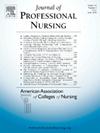本科护生在模拟训练中的负面体验:质性研究的综合
IF 2.9
3区 医学
Q1 NURSING
引用次数: 0
摘要
目前,模拟训练方案被广泛应用于护理本科学生的教学中。研究多关注学习者的积极体验,较少关注消极体验,这阻碍了护理模拟培训项目的改进和升级。目的系统综合护理本科学生模拟训练中消极体验的定性数据。我们进行了一项定性研究的综合研究。数据来源:PubMed、Web of Science、Embase、CINAHL、CNKI、万方、VIP、CBM。方法本综述遵循PRISMA指南。对本科护生在模拟训练中的负面体验进行定性研究。乔安娜布里格斯研究所的工具和方法被用于方法论、质量评估、数据提取和结果综合。结果本研究共纳入13篇文章,39项研究结果被整合到6个类别和3个主题:压力和情绪问题、沉浸感不足和学习效果有限。这些问题包括:压力问题、消极情绪、缺乏现实性、设备使用问题、有限的即时学习成果和有限的模拟培训机会。结论本研究将护理本科学生的负面经历融入到模拟训练中。本研究可为护理本科学生在模拟训练中遇到的负面经验管理提供参考。此外,它可以促进护理教育背景下模拟培训计划的制定和实施。本文章由计算机程序翻译,如有差异,请以英文原文为准。
Negative experiences of undergraduate nursing students in simulation training: A meta-synthesis of qualitative studies
Background
Currently, simulation training programs are widely used in the teaching of undergraduate nursing students. Studies has focused more on the positive experiences of learners and less on the negative experiences, which hinders the improvement and upgrading of nursing simulation training programs.
Purpose
To systematically synthesize qualitative data on the negative experiences of undergraduate nursing students in simulation training.
Design
We conducted a meta-synthesis of qualitative studies. Data sources included PubMed, Web of Science, Embase, CINAHL, CNKI, Wanfang, VIP and CBM.
Methods
The review follows the PRISMA guidelines. Qualitative studies focusing on undergraduate nursing students' negative experiences in simulation training were included. Joanna Briggs Institute tools and approaches were used for methodology quality evaluation, data extraction and findings synthesis.
Results
A total of 13 articles were included in this study, and 39 findings were integrated into six categories and three themes: stress and emotional problems, inadequate immersion, and limited learning effect. The categories are as follows: stress issues, negative emotions, lack of realism, device usage issues, limited immediate learning outcomes, and limited simulation training opportunities.
Conclusions
This study integrated the negative experiences of undergraduate nursing students in simulation training. This meta-synthesis can serve as a reference to assist in the management of negative experiences encountered by undergraduate nursing students during simulation training. Furthermore, it can promote the development and implementation of simulation training programs within the context of nursing education.
求助全文
通过发布文献求助,成功后即可免费获取论文全文。
去求助
来源期刊
CiteScore
4.80
自引率
8.00%
发文量
153
审稿时长
52 days
期刊介绍:
The Journal will accept articles that focus on baccalaureate and higher degree nursing education, educational research, policy related to education, and education and practice partnerships. Reports of original work, research, reviews, insightful descriptions, and policy papers focusing on baccalaureate and graduate nursing education will be published.

 求助内容:
求助内容: 应助结果提醒方式:
应助结果提醒方式:


